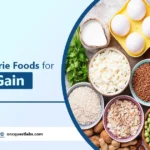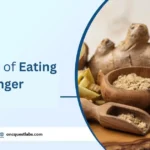Diarrhea is a common digestive issue characterized by frequent, loose, and watery stools. It can be caused by various factors such as infections, food intolerances, medications, or stress. While diarrhea often resolves on its own, it can lead to dehydration and discomfort, making dietary management crucial for recovery. Eating the right foods can help soothe the digestive system, restore lost nutrients, and prevent further irritation. This guide explores what to eat when you have diarrhea, focusing on easy-to-digest foods that aid in recovery, maintain hydration, and support overall digestive health. By understanding the role of specific foods and hydration strategies, you can effectively manage diarrhea and support your body’s healing process
Contents
Understanding Diarrhea
Understanding diarrhea involves recognizing its causes, symptoms, and effects on the body. Diarrhea is characterized by frequent, loose, and watery stools, which can result from various factors such as viral or bacterial infections, food intolerances, or gastrointestinal disorders. It can also be triggered by stress or certain medications. The condition often leads to dehydration due to the rapid loss of fluids and electrolytes, which can exacerbate symptoms and lead to further complications if not managed properly. Symptoms typically include abdominal cramping, urgency to use the bathroom, and sometimes nausea. Maintaining hydration is crucial during this time, as it helps replenish lost fluids and electrolytes, while dietary adjustments can support the digestive system in recovering from the irritation. Understanding these aspects helps in managing diarrhea effectively and promoting a quicker recovery.
Foods to Eat During Diarrhea
When managing diarrhea, choosing the right foods can significantly aid in recovery and reduce symptoms. Here are some recommended options:
BRAT Diet
Bananas: Easy to digest and rich in potassium, which helps replenish electrolytes lost due to diarrhea. They also have a soothing effect on the stomach.
Rice: Plain white rice is bland and helps to firm up stools by absorbing excess water in the intestines. It provides energy without irritating the digestive system.
Applesauce: Contains pectin, a type of soluble fiber that can help to bulk up stools. It’s also gentle on the stomach and provides some essential nutrients.
Toast: Simple, unbuttered toast is easy on the digestive system and can help bind stools. It provides a mild source of energy without adding fat or sugar.
Clear Broths
Clear broths, such as chicken or vegetable broth, are excellent for hydration. They provide essential fluids and electrolytes without causing additional digestive strain. They also help soothe the stomach and can be consumed in moderate amounts.
Boiled Potatoes
Boiled potatoes without skin are a bland, easily digestible food that provides energy and nutrients. They help in firming up stools and are gentle on the stomach.
Plain Crackers
Plain, unsalted crackers are light and easy to digest, making them a good choice when your stomach is sensitive. They help to provide energy and are not likely to irritate the digestive system.
Oatmeal
Oatmeal is gentle on the stomach and contains soluble fiber, which can help absorb excess water and firm up stools. It’s also a good source of energy and nutrients without being overly heavy.
Hydration Strategies
Hydration is crucial when dealing with diarrhea, as it helps replenish lost fluids and maintain electrolyte balance. One effective strategy is to consume oral rehydration solutions (ORS), which are specifically designed to replace lost fluids and electrolytes. These solutions contain a balanced mix of salts and sugars that promote efficient absorption in the intestines. Electrolyte drinks, available commercially or homemade, can also be beneficial. They help restore essential minerals like sodium, potassium, and chloride, which are depleted during diarrhea. Coconut water is another excellent option, offering natural electrolytes and hydration. Additionally, herbal teas such as chamomile or ginger tea can soothe the digestive tract while keeping you hydrated. It’s important to drink small amounts frequently rather than consuming large quantities at once to avoid overwhelming the stomach. By incorporating these hydration strategies, you can effectively manage the effects of diarrhea, prevent dehydration, and support your body’s recovery.
Foods to Avoid During Diarrhea
When experiencing diarrhea, certain foods can exacerbate symptoms or prolong discomfort, so it’s essential to avoid them. Fatty foods, such as fried items and rich, creamy dishes, can be hard on the digestive system and may worsen diarrhea by increasing gastrointestinal irritation. Spicy foods should also be avoided, as they can irritate the intestines and lead to further digestive distress. Dairy products, including milk, cheese, and yogurt, can be problematic, particularly if lactose intolerance is present, as they may worsen diarrhea and cause additional gastrointestinal symptoms. High-fiber foods, such as raw vegetables, whole grains, and legumes, can irritate the digestive tract and increase stool frequency. Additionally, sugary foods and drinks, including sodas and sweets, can draw water into the intestines, aggravating diarrhea. Steering clear of these foods helps to reduce gastrointestinal irritation, maintain hydration, and support a quicker recovery.
Tips for Managing Diarrhea
Here are some effective tips for managing diarrhea:
Stay Hydrated: Drink plenty of fluids to replace the water lost due to diarrhea. Opt for clear broths, oral rehydration solutions, and electrolyte drinks. Avoid caffeinated and alcoholic beverages, which can dehydrate you further.
Eat Small, Frequent Meals: Instead of consuming large meals, eat small amounts of bland, easy-to-digest foods throughout the day. This helps prevent overwhelming your digestive system.
Stick to a Bland Diet: Follow the BRAT diet (bananas, rice, applesauce, and toast) and other bland foods like plain crackers and boiled potatoes. These are gentle on the stomach and help firm up stools.
Avoid Irritating Foods: Steer clear of fatty, spicy, and dairy-rich foods, as well as high-fiber and sugary items. These can worsen symptoms and irritate your digestive system.
Rest: Give your body time to recover by getting adequate rest. Fatigue can exacerbate the discomfort associated with diarrhea.
Monitor Your Symptoms: Keep track of your symptoms and any changes in your condition. This can help you identify potential triggers or improvements and is useful information if you need to consult a healthcare professional.
Conclusion
Managing diarrhea effectively requires a combination of dietary adjustments, hydration strategies, and mindful practices. By focusing on consuming bland, easy-to-digest foods and staying well-hydrated with oral rehydration solutions, clear broths, and electrolyte drinks, you can support your body’s recovery and alleviate symptoms. Avoiding irritants like fatty, spicy, and dairy-rich foods is essential to prevent further gastrointestinal distress. Additionally, practicing good hygiene, resting adequately, and monitoring your symptoms play crucial roles in managing and overcoming diarrhea. If symptoms persist or are severe, seeking medical advice is important for appropriate treatment. Adopting these strategies will help you navigate through episodes of diarrhea more effectively and return to optimal health.





